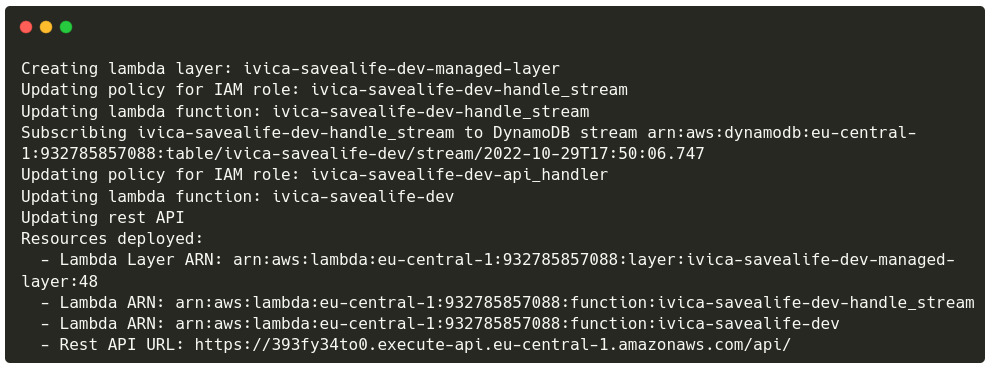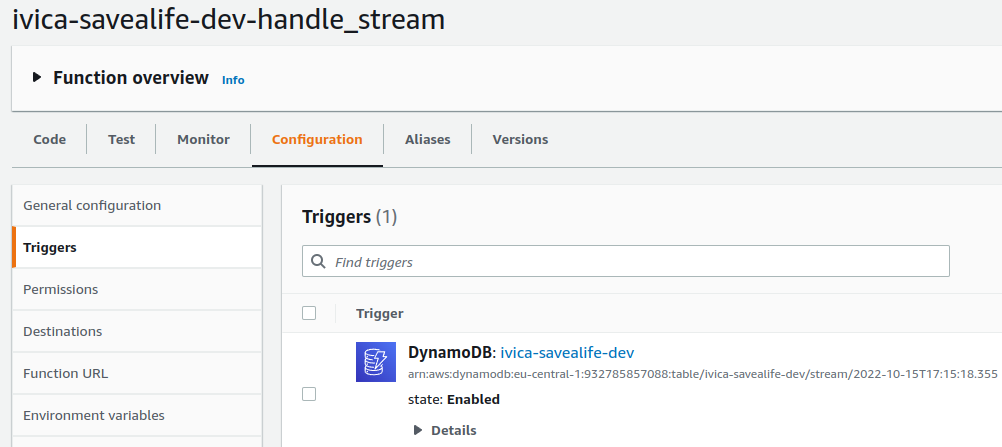Read stream data for real
On the previous page we made sure that separate functions have separate permissions and separate environment variables (implementing the so-called least privilege principle).
chalice deploy and notice how the output changes slightly:

We can notice several new things happening:
- a new Lambda function, named
ivica-savealife-dev-handle_streamis created - a new IAM role was created for it (and the permissions policy was attached to the role)
- the function is subscribed to the stream we created
- permissions policy for
ivica-savealife-dev-api_handlerwas updated
Looking at the AWS console, we can also notice that a trigger for our handle_stream function was added:

From now on, whenever a new write operations happens on our table, this Lambda function will be triggered/invoked.
Create a new donation
http -b POST $(chalice url)/donation/create city=Amsterdam address="Main street" datetime="2022-04-06T12:00:00"
and follow the logs with chalice logs -n handle_stream --follow. -n is used to specify the name of the function whose logs
we want to view and --follow will poll for new log lines continuously.
The log line in my case looks like this:

Looking at it more closely we notice that it is a bit strange; what are these 'S' keys there…? Well, they are proof
that this event came from DynamoDB streams, since DynamoDB has data types and 'S' stands for String.
Adding a donor will work in a similar fashion:
http -b POST $(chalice url)/donor/signup first_name=ivica email="ivica@server.com" type="0+" city="Haarlem"
and logs show

Amazing, right!?
Well, almost. The above messages show us that DynamoDB streams are indeed working, sending events when a new item is added and that our function is handling those events.
What is not so great about it is that both the “Donor sign-up” and the “New blood donation event” are handled. We want to send emails to donors from Haarlem whenever a new blood donation event is created in Haarlem. No events should be handled by our function when a new donor signs up.
We need a way to filter these stream events and only react to those that are emitted when a new blood donation event is created.